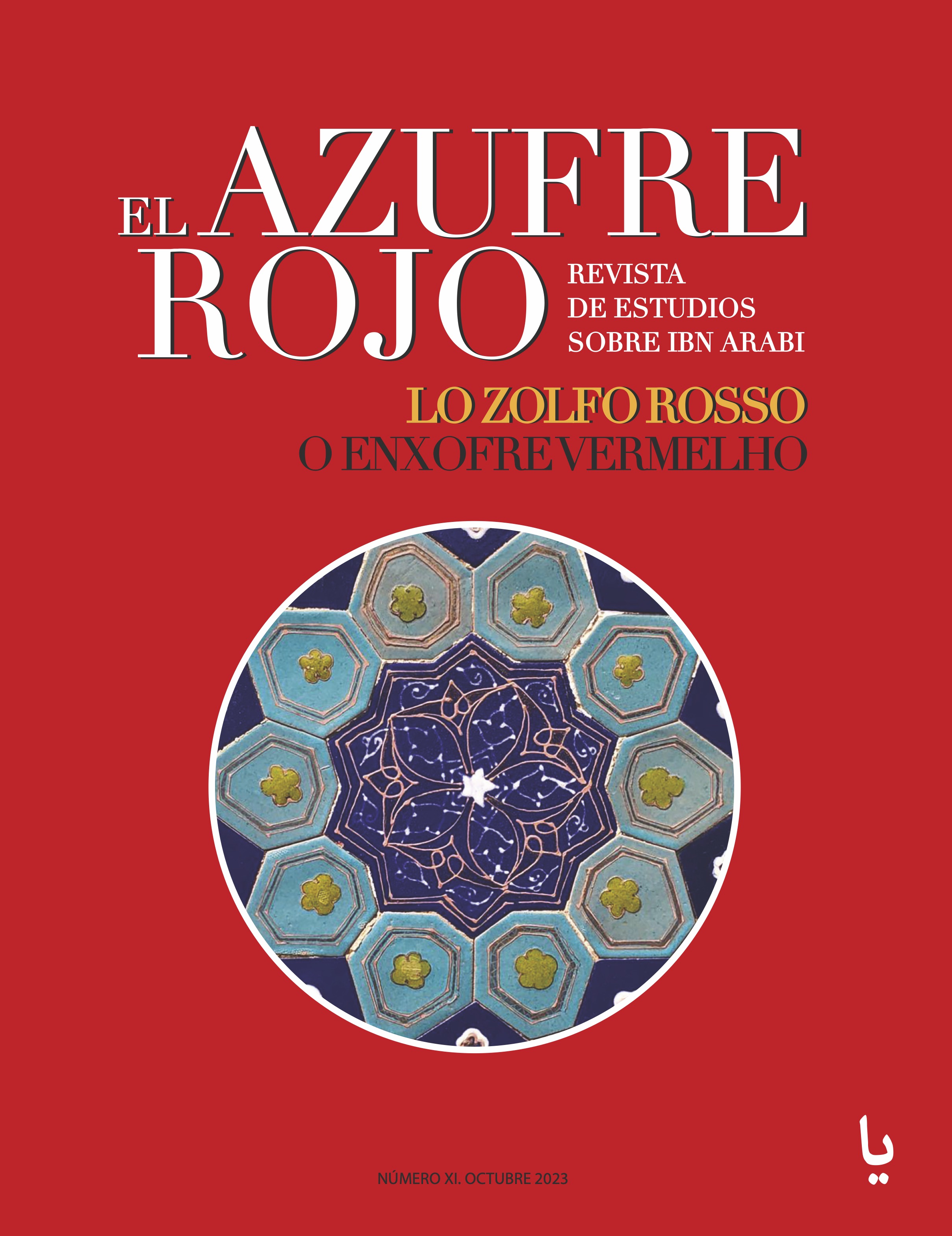ʻABD AL-QĀDIR AL-ǦAZĀ’IRĪ: EL RESTABLECIMIENTO DE LAS ENSEÑANZAS AKBARÍES EN LA MODERNIDAD ISLÁMICA Y SU INFLUJO EN LA CULTURA EUROPEA CONTEMPORÁNEA
Resumen
Resumen: La vida y obra del Emir ʻAbd al-Qādir al-Ǧazā’irī están profundamente ligadas a lo que podríamos denominar el «restablecimiento» del legado de Muḥyiddīn Ibn ‘Arabī, en tierras árabes bajo dominio otomano en los albores de la modernidad islámica. Dicho proceso restaurativo se habría iniciado dos siglos antes (siglos XVII), merced a las enseñanzas transmitidas por eminentes maestros como Ibrāhīm al-Kūrānī y ʻAbd al-Ganī al-Nābulusī, figuras axiales del sufismo de la época en mención, cuyo magisterio habría sido difundido por una cadena ininterrumpida de discípulos hasta los inicios de la modernidad.
Aquella rica tradición habría llegado a su culmen expresivo con el magnum opus de ʻAbd al- Qādir, el Kitāb al-Mawāqif, obra fundamental del sufismo decimonónico y fuente viva de las ciencias akbaríes cuya divulgación fue transmitida por discípulos del ilustre šayḫ argelino a una nueva generación de trasmisores, entre los que encontramos al pintor y visionario sueco Ivan Aguéli (Abd al-Hadi Aqili). En 1910, Aguéli inició a René Guénon en el sufismo, inaugurando así un nuevo ciclo en la historia de la transmisión de las doctrinas akbaríes.
Abstract: “ ʻAbd al-Qādir al-Ǧazā’irī: Re-establishment of the Akbarian Legacy at the Dawn of the Islamic Modern Era and his Influence in Contemporary European Culture”. The life and work of Emir ʻAbd al-Qādir al-Ǧazā’irī are deeply bonded to what way be called the ‘reestablishment’ of Muḥyiddīn Ibn ‘Arabī’s legacy in the Arab lands under Ottoman rule at the dawn of the Islamic modern era. Significantly, such a process had begun two centuries earlier through the teachings of eminent shaykhs such as Ibrāhīm al-Kūrānī and ʻAbd al-Ganī al-Nābulusī, dominant figures of tasawwuf during the period in question, and whose teachings had been disseminated by an uninterrupted chain of disciples up to modern era.
Such a rich tradition may have reached its peak with ʻAbd al-Qādir’s magnum opus, the Kitāb al-Mawāqif, a fundamental oeuvre of 19th century Sufism and a living source of Akbarian sciences whose dissemination was transmitted by disciples of the illustrious Algerian shaykh to a new generation of sālikūn, among those, Swedish artist and visionary Ivan Aguéli (Abd al-Hadi Aqili). In 1910 Aguéli initiated René Guénon into the path of Sufism, thus inaugurating a new phase in the history of the transmission of the Akbarian teachings.
Descargas
-
Resumen288
-
pdf196


